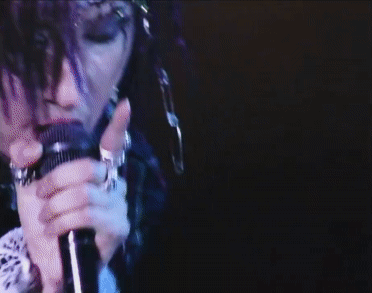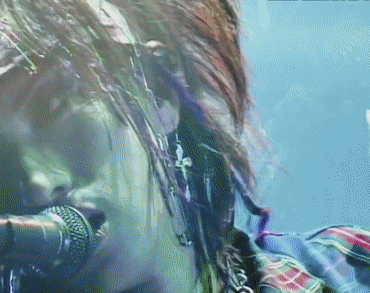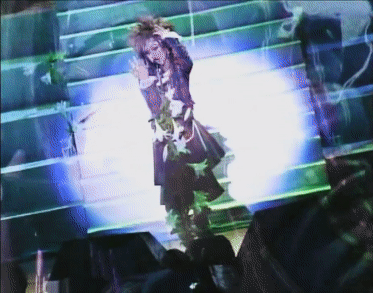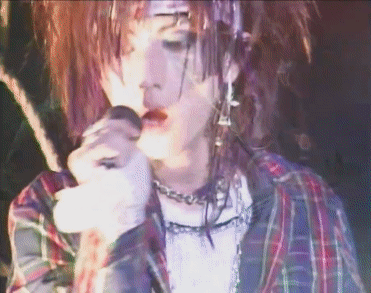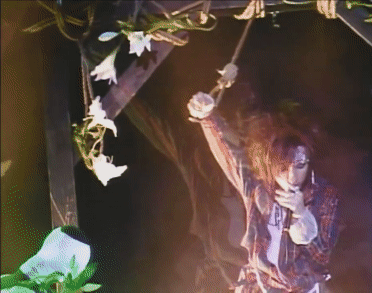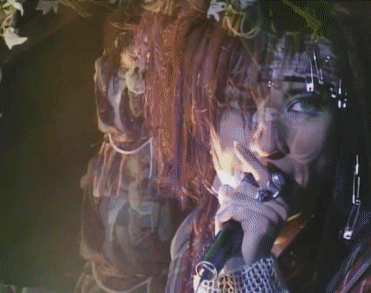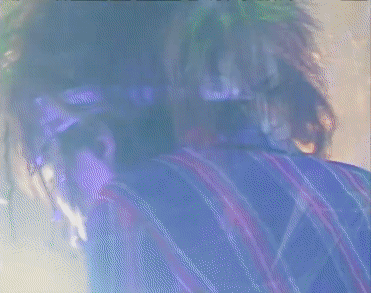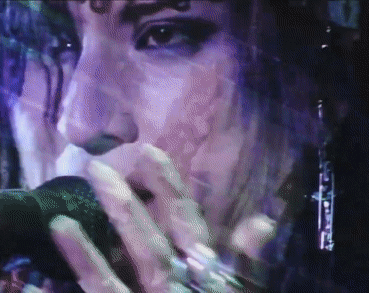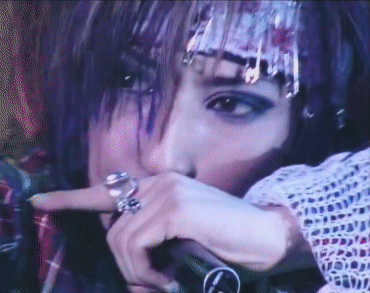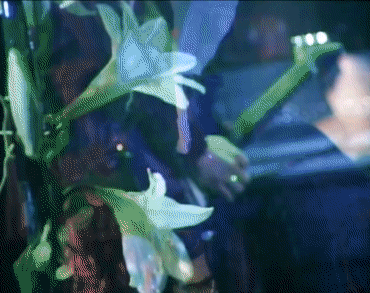Those who trespass against us - beware the shadows of dusk
Don't wanna be here? Send us removal request.
Photo
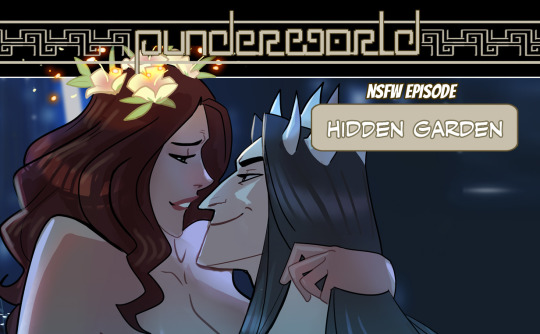



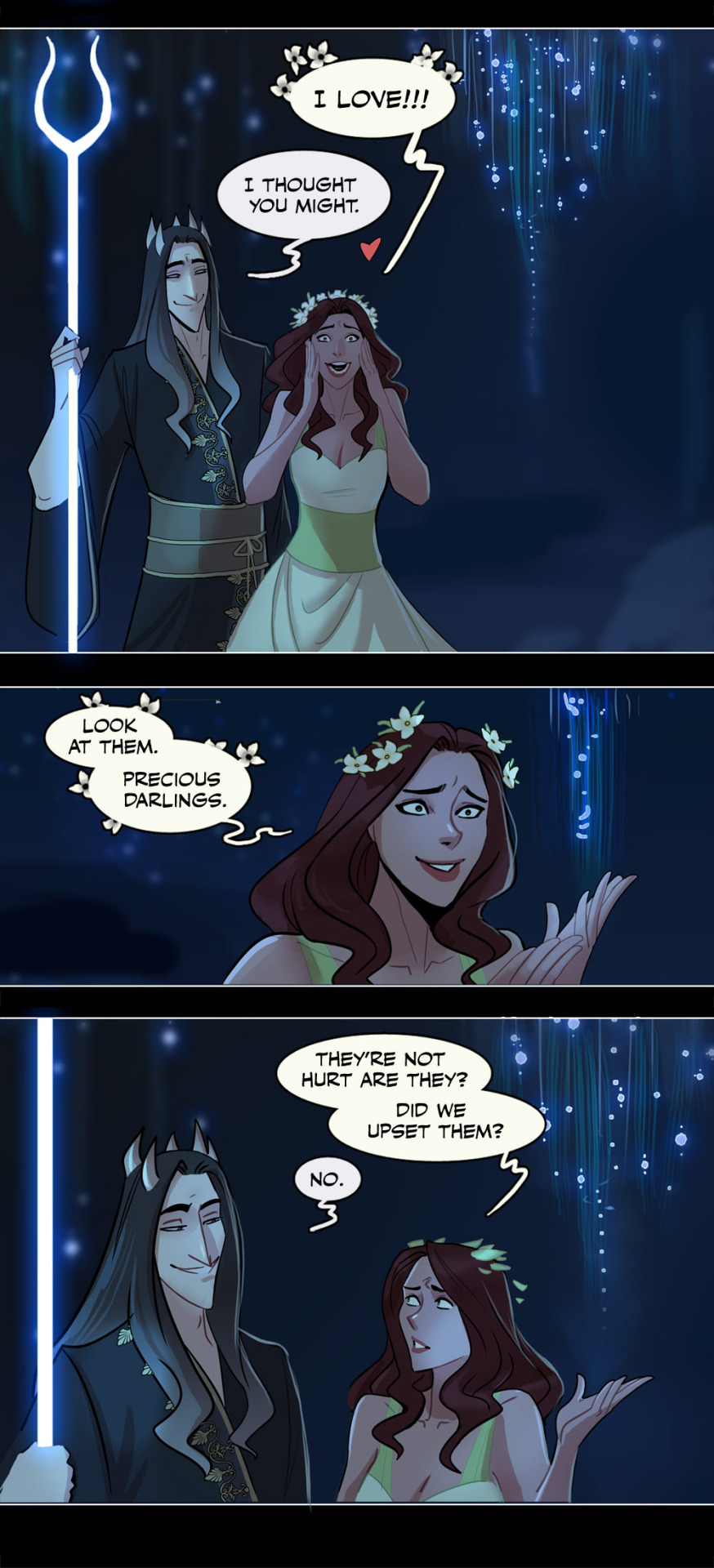



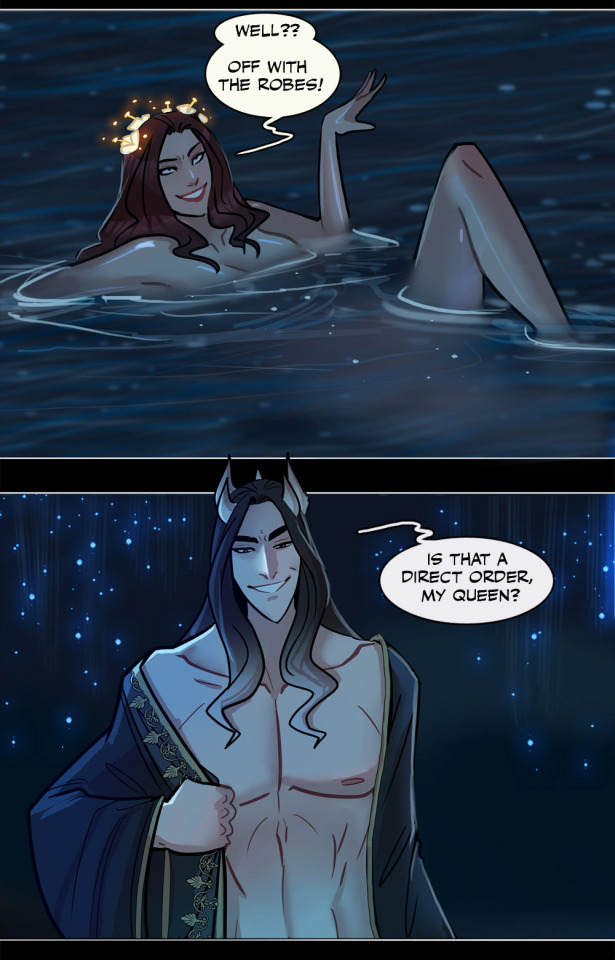
aaaand that is as much as I can show. It’s a very long strip :) The rest is for my patrons only as this comic wouldn’t exist without them.^^ https://www.patreon.com/sigeel
14K notes
·
View notes
Text

Happy birthday to Michael Bell , the voice actor for Raziel character
103 notes
·
View notes
Text
The Root Series | Kaoru
Ever wondered how Dir En Grey came to be what they are today? Certainly, part of it is because they were dropped as babies. But let's take a look at the records that made them. I mean, genuinely made them. You know, those tracks that you recorded on mixtapes that you lovingly adorned in colourful, scented pens and rewinded so many times the tape eventually broke - that primordial, cruel snap that you never properly grieved?

Kaoru wants you to know that it's okay to be a slightly overenthusiastic fan. Because he too, can be one.
Let's start with the chillest of the five. According to the man himself and his 2009 Dir En Grey Guitar Book, co-authored with Die, here's his core playlist.
Al Di Meola, Elegant Gypsy, 1977
薫: I was twenty when I first came into contact with this one. I remember finding the songs and guitar vibe very interesting. Around five years ago I decided that I wanted to pull it out again and give it another listen so I could practice my guitar picking. I listened to it over and over.
A Perfect Circle, Mer de Noms, 2000
薫: I first listened to this one about five years ago. I found the guitar aspect of it particularly interesting, it's actually quite simple. The guitar phrasing is very straightforward. It includes sounds that had never really been tried before.
Bauhaus, Mask, 1981
薫: Hide (of X Japan) used to say that Bauhaus were one of his influences, and that was why I started listening to them back in high school. I'm a fan of UK stuff. The music, the hazy vibes, it drew me to what I call 'positive punk'.
Black Light Burns, Cruel Melody, 2007
薫: I've been a fan of Wes Borland ever since he was in Limp Bizkit. The guitar game in this album is rad. It's simple, but it has its own signature. I also like the song style. It's one of my favourites out of all the more recent I've been listening to.
Cocco, Bougainvillea, 1997
薫: Besides the guitar, when I first listened to the song Isho, I was struck. What an artist she is! I was surprised that a Japanese artist could pull this off. Even today, I'm still a fan of Cocco's music.
Color, Gekitotsu, 1989
薫: Back in high school, when I was into fast songs, I used to thing this was more punk than metal. I fancy Tatsuya's crisp guitar game and Tommy's rough voice. He's rough, though.
Curve, Doppelgänger, 1992
薫: A friend introduced me to them, and I got into it. It got me wondering how they managed to get this sound.
Daniel Ash, Foolish Thing Desire, 1992
薫: I listened to this one after I got into Bauhaus. This record is more of a rock vibe compared to Bauhaus, and I just love whatever Daniel Ash does. I'm a big fan of his. His light-handed guitar game is super classy.
Daisy Chainsaw, Eleventeen, 1992
薫: This also came to by Hide's (of X Japan) influence. My first listen was tentative, and I didn't know if I should consider it power rock or what based on how distorted the bass was. Back in high school, I'd listened to this one over and over, I lost count of how many times I played it. It had a huge influence on me.
The Damned, Damned Damned Damned, 1977
薫: Another one that I learned about thanks to Hide (of X Japan). Some would say they're one of the three main punk bands out there, others say they're not punk at all, but I like them regardless. I thing they're more rock than punk. I used to cover them a lot.
Dead End, Shambara, 1988
薫: Dead End were the first band I ever listened to, and the first that comes to mind when I think of rock music. It had a big influence on ly guitar game. I like the effects on their guitar phrasing, along with imagination-provoking melodies. It also as this tribal atmosphere to it. Great stuff.
Deftones, Adrenaline, 1995
薫: I always liked their stuff, but then we toured together last year, they influenced me also on a personal level. As a band, they're constantly evolving, and yet something about them stays the same throughout. It still amazes me to this day, how they managed to get that sound over ten years ago.
D'Erlanger, Basilisk, 1990
薫: I hesitated when I picked this one, because I'm sure it'll overlap with Die's selection. I got this album back when I used to listen to Bauhaus all the time. I remember thinking that no other band could produce such an atmosphere. When I first listened to them, I couldn't believe they were Japanese.
Faith No More, Album Of The Year, 1997
薫: For some time, people were surprised that I even liked this album. The truth is that I only got into them quite recently. Out of everything they've released, I find that this album has its very own atmosphere and incisiveness. These days I listen to it a lot.
Joe Hisaishi, The Best Collection, 2006
薫: Proud to know that this composer is Japanese. I think that's also why he manages to create these melancholic melodies that I really like. I've been listening to this one since I was young.
Incubus, S.C.I.E.N.C.E, 1997
薫: Plenty of guitar phrasing that'll leave you amazed at the Pandora box of sound that you just cracked open. This album might be experimental, but it takes nothing away from the band's energy. Worth paying attention to.
Jane's Addiction, Ritual de lo habitual, 1990
薫: Yet another one that I got into because of Hide (of X Japan). When I first listened to it back in high school, I found it hard to get. But when I revisited it after starting a band, I finally realised how groundbreaking they were. They experiment and create great synergies. It inspired me as a composer.
Japan, Tin Drum, 1981
薫: The band's vibe drew me in. It was the guitar game, for sure, but I also dig the band's obnoxious side. This album has a lot of tribal sounds and plenty of new guitar riffs.
King Crimson, Lizard, 1970
薫: I was really into this when we were working on Macabre. Bet you can tell by my guitar game! To this day, I'm still influenced by the guitar build-up and sound synergy.
Lard, The Last Temptation of Reid, 1990
薫: Well, you know that I'm crazy about Dead Kennedys and Ministry. And this record is fierce and destructive, and I can't help but turn up the volume. Forkboy rocks!
Machine Head, The Blackening, 2007
薫: I like all their albums, but this one is kind of underrated. In recent times, most bands leverage with the mainstream, but this record is nothing but the band's own power. Impressive.
The Mad Capsule Markets, Park, 1994
薫: I like their more recent, digital sound, but I find that this is their best work before they took that turn. It's quite pop, but very incisive. But my favorite has to be Systematic, on their Digidogheadlock album.
Ministry, Psalm 69, 1992
薫: I really like this band, they literally taught me what industrial music is. I learned about guitar input and distortion at home, copycatting their riffs in Solo-Ministry.
Muse, Origin of Symmetry, 2001
薫: I was a casual fan, but when I first saw them live a few years back, it was a game-changer. How dare they be so talented? I envy them. I love them.
Tsuyoshi Nagabushi, Showa, 1989
薫: When I first listened to Gekiai, it was like a shock. I didn't know anything about Nagabushi, and yet this awesome song just seized my little heart. Now I feel like listening to it again.
Nine Inch Nails, Downward Spiral, 1994
薫: I adore this band. Their song style and digital, mechanical sound somehow manages to portray the human condition. You can feel Trent Reznor's weaknesses, his pent-up anger in this album. To this day, I still listen to this one a lot.
Pantera, Vulgar Display of Power, 1992
薫: When I first listened to them back in high school, I was like "What the hell! How can they get such a sharp guitar sound?" Back in the day, we'd hang out at somebody's place everyday, and we'd listen to this with the volume basting, playing air guitar and impersonating Dimebag Darrell. Their guitar phrasing also influenced me.
Vanessa Paradis, Vanessa Paradis, 1992
薫: Her voice really struck me. It's a pop record, but the guitar arrangement is pretty cool. I really look up to Lenny Kravitz for his ability to come up with this.
Pink Floyd, The Dark Side Of The Moon, 1973
薫: Actually, I only found out about this band during our Macabre era. The audio quality is insane, and I was dumbfounded at how they channel their sound. Even today, it's crazy stuff. I listen to this so often I actually have five version of this record, including an analog disc.
Rage Against The Machine, Renegades, 2000
薫: I like all of Rage's albums, but I picked a cover album here. I picked it because it showcases the band's power and genesis, and also because it's some seriously quality stuff. Even with bad tuning, the sound isn't fuzzy and sets the stakes pretty high.
Smashing Pumpkins, Siamese Dream, 1993
薫: Their charm lies in their vocalist's voice, their great songs and guitar game. I saw them live here in Japan, a while back. True to their melancholic vibes, they did this metallic distortion on the guitars, which was a bit different from their usual grunge. This is a great band, I don't think any other can live up to it.
System of a Down, Toxicity, 2001
薫: I was shocked when I first listened to it - how can they make it sound so cool with such simple riffs? It's a body that perfectly embodies the band's vibe. Also, I love Serj's voice.
Tool, Aenima, 1996
薫: I've been a fan of their for a very long tome, but when we played the same stage last year, I began liking them even more. They have a great sound, and their guitar picking game is just right. I feel like a rookie next to them.
Volcano, Violent, 2000
薫: I've been a fan of She-Ja's ever since he was in Gargoyle. I used to go their lives often. Of all the awesome guitar playing She-Ja's done, my favourite is on this album. So many breathtaking riffs and solos. Of all solo guitarists in the world, She-Ja's my number one favourite.
White Zombie, Astro-Creep: 2000, 1995
薫: Great stuff. Digital, but so raw. There's plenty of guitar input and many different sounds inserted, which makes it very heavy. And yet, it's easy to listen to in terms of pace. It strikes me how pop it sounds, even if it's a heavy record. Also, I think the name White Zombie is pretty cool.
X, Blue Blood, 1989
薫: The album that changed my life. Had I never listened to it, I wouldn't be the man I am today. No other album, not even today, could possibly shake me in the way I was shook when I first listened t this. When I die, I want this album in my coffin with me.
Zi:Kill, Close Dance, 1990
薫: I was into Zi:Kill back when they had that underground vibe. Back then, I used to go their gigs a lot. I particularly liked the song I 4 U, and I used to cover this album. I like everything about this album, actually, even the cover art.
Zilch, 3 2 1, 1998
薫: I deeply believe that Hide was at his best back when he played with X, but I'd have loved to see him perform with Zilch.
Various Artists, Underworld, 2003
薫: It's an original soundtrack, and it just so happens that all my favourite artists are in this record. It's a great soundtrack. So many mind-blowing songs! Also, I love Wes Borland's guitar game.
236 notes
·
View notes
